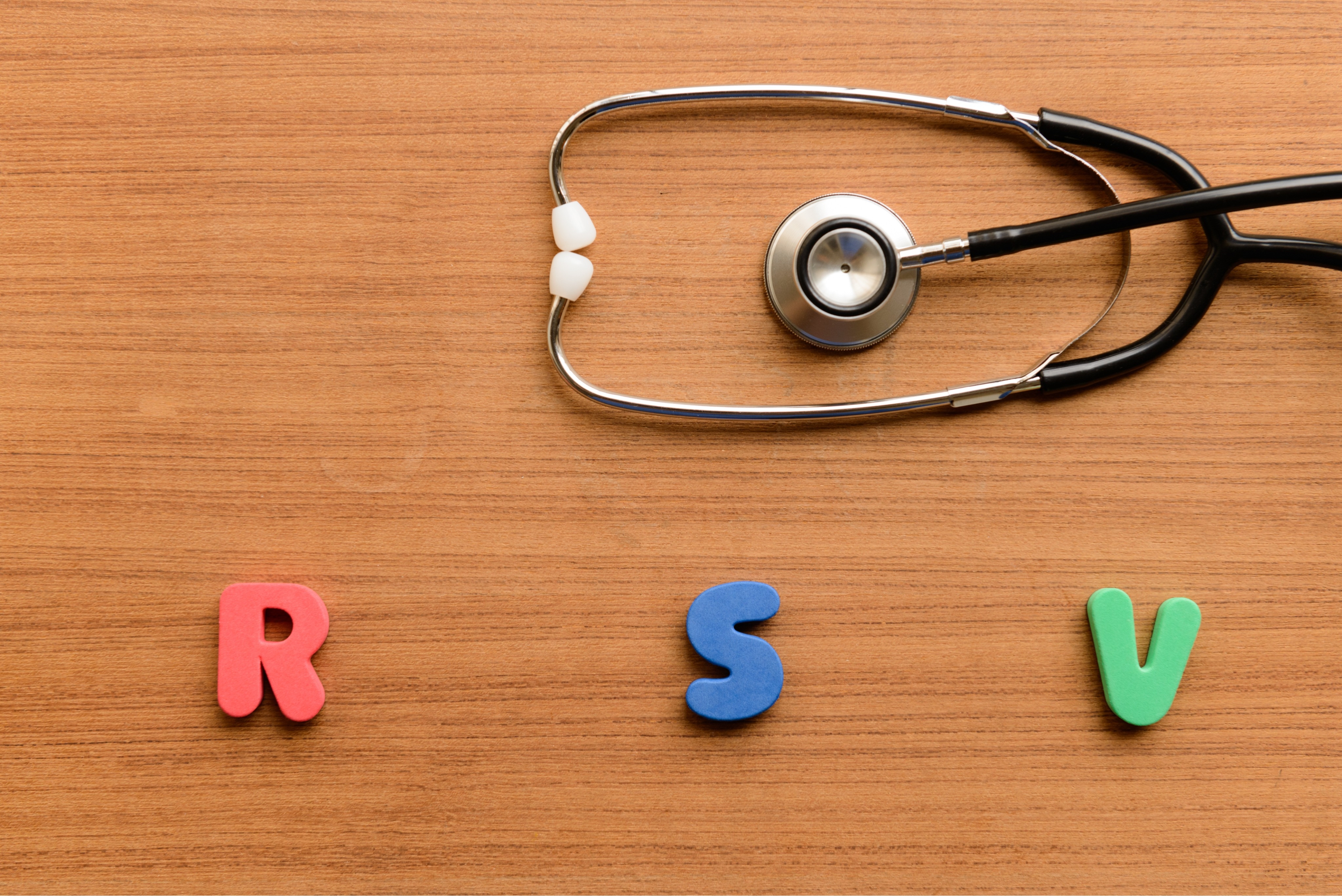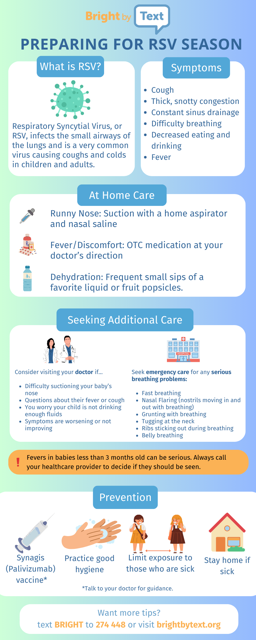It’s RSV Season! A Pediatrician Shares Everything You Need to Know
By Hilary Stempel, MD, MPH

It’s RSV Season! A Pediatrician Shares Everything You Need to Know
Prepare for RSV season with insights from a pediatrician
When my twins were born last fall, RSV was the virus I was most concerned about. Respiratory Syncytial Virus (RSV) is a long name for a very common virus that causes coughs and colds in children and adults alike. It spreads quickly through daycares and schools. This illness can be like an annoying cold in older children and caregivers, but it can be very serious in infants.
Why are we hearing about RSV so much now?
RSV infections often happen in the fall when it becomes colder and kids are in school. During COVID, when social distancing and masking was so common, we saw much less RSV than usual. This means fewer kids developed immunity to RSV. Now, there are lots of kids who are getting their first infection with RSV all at the same time.
What are the symptoms of RSV?
What can you do to prevent RSV?
Certain kids are at higher risk for having more serious RSV and these children can get a vaccine, Synagis (Palivizumab) given monthly during RSV season. Children who may qualify for the vaccine are those who are born very prematurely, have serious heart conditions, or have serious lung illnesses. Most children are healthy enough that we do not give them this vaccine. Antibiotics do not work for RSV.
Otherwise, since RSV is a respiratory illness, the simple rules to stay healthy apply: handwashing, staying home when sick, avoiding crowds, and limiting exposure to those who are sick.
How can you care for your child who has RSV?
It’s common for kids in childcare to get RSV. The best treatment at home is to help with their symptoms.
Runny nose: suction with a home aspirator and nasal saline can be very helpful to clear up for the congestion. Be prepared to do this often!
Fever and discomfort: treating the discomfort with an anti-fever medicine like tylenol (acetaminophen) or motrin (ibuprofen) can make them more comfortable.
Hydration: give your child small sips of their favorite liquid often. They may also enjoy eating fruit popsicles. It is ok if they don’t want to eat much real food when ill with RSV.
Medication Tip: Ibuprofen is only for infants and children older than 6 months.
Remember: Fevers in babies less than 3 months old can be serious and you should always call your healthcare provider to decide if they should be seen.
When to worry?
There are two main concerns with RSV infection.
1. Breathing troubles. RSV can make it hard for babies and young children to breathe well on their own. If this is the case, they may need extra breathing support (ex: more oxygen, humidified air) at the hospital. Hospital stays are usually short and very helpful.
Signs of breathing problems include:
-
Fast breathing
-
Nasal Flaring (nostrils moving in and out with breathing)
-
Grunting with breathing
-
Tugging at the neck
-
Ribs sticking out during breathing
-
Belly breathing
2. Dehydration. With the symptoms of snotty noses, fever, and feeling unwell, this can make it very difficult to drink enough liquids for children to stay hydrated. Sometimes kids need to be in the hospital to help them stay hydrated.
When should you go to the clinic, urgent care, or emergency room?
Sometimes kids get sick enough with RSV that it's helpful to be seen by a healthcare provider.
-
Go to the emergency room if:
-
Your child has any of the serious breathing problems mentioned above
-
-
Go to urgent care or clinic if:
-
You’re having difficulty with suctioning your baby’s nose
-
You need help having your child drink enough fluids
-
Symptoms are lasting longer than 5 days and are not improving
-
You’re concerned that they should be getting better but are not
-
You have questions about their fever or cough
-
A few last points about RSV:
-
If your child gets RSV, try not to feel guilty! This is a very common infection.
-
Kids often get RSV more than once. Their next infection is usually milder.
- If your child had RSV and was getting better and then got worse or just is not improving, take them in to see their healthcare provider. After kids have RSV they may be more likely to get an ear infection.
- It’s always a great time to teach and practice good handwashing.
About Bright by Text
Kids don't come with instructions. That's why Bright by Text sends the info parents need most for raising little ones, from pregnancy through age 8. To join our village and get our free messages based on your child’s exact age and where you live, simply text BRIGHT to 274 448 or click here. Don’t forget to follow us on Facebook and Instagram. You’ve got this, parents!

Sign up now to receive FREE text tips - Based on your child's EXACT AGE right now!.
